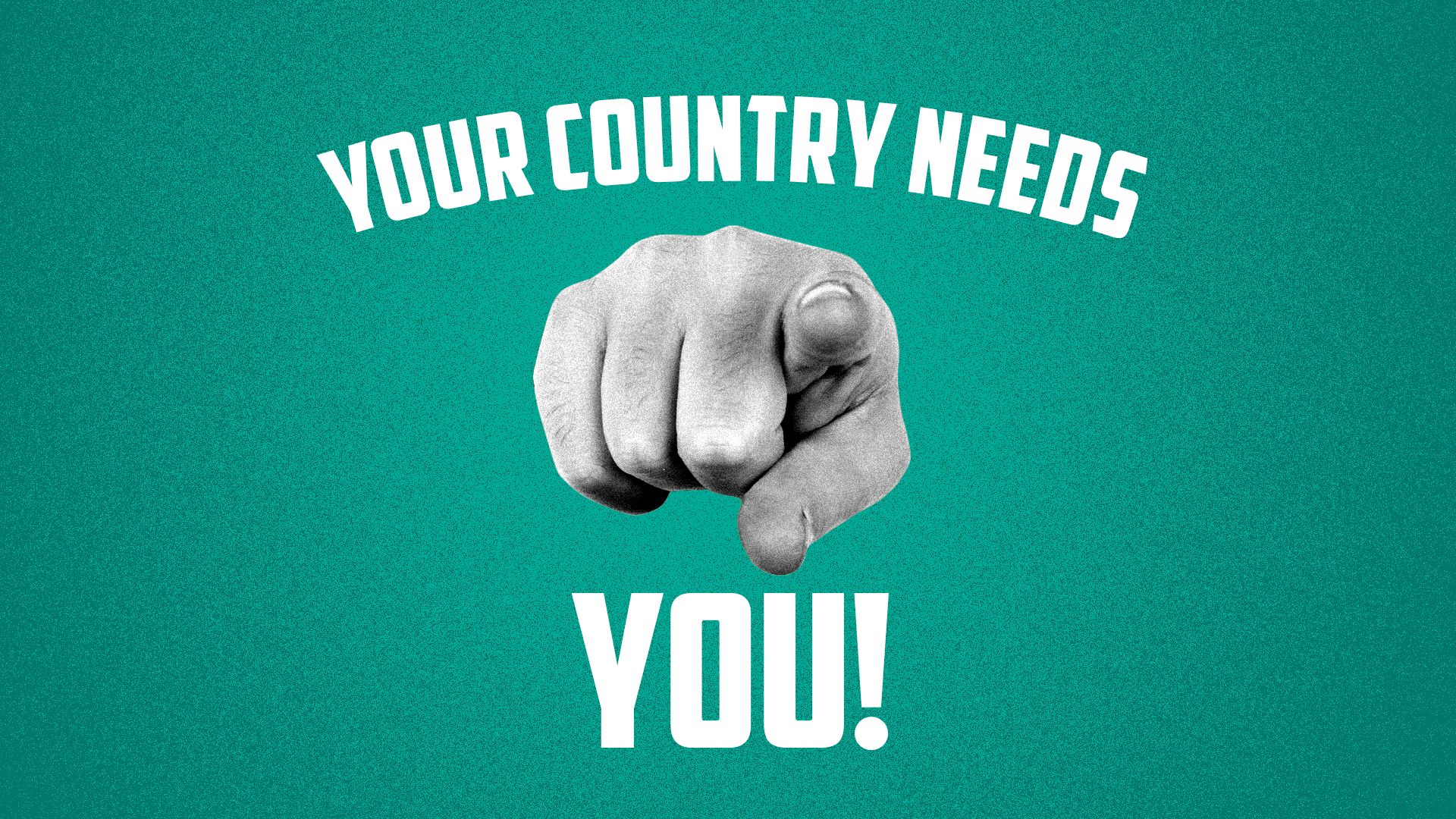
Several Democratic presidential candidates are advocating to expand public service programs in America.
Why it matters: Proponents, such as former Rep. John Delaney (D-Md.) and South Bend Mayor Pete Buttigieg (D-Ind.), say public service builds morale and is a means of developing shared values. Programs also claim to provide opportunities for those at the start of their careers to build skills, resumes and networks.
Details: Delaney has proposed one to two years of mandatory public service for all Americans following high school graduation. Buttigieg has proposed increasing the number of paid service opportunities from 75,000 to 250,000 in existing federal and AmeriCorps grantee programs.
Where it stands: Countries around the world often require military or other public service during early adulthood, with occasional exceptions for those pursuing higher education or athletics.
- Colombia requires men past the age of 18 to spend one to two years in the military based on their education and branch of service.
- Morocco reinstated compulsory military service in 2018, requiring all citizens ages 19-25 to serve for a full year.
- Rwanda requires all citizens to participate in a national community cleanup on the last Saturday of every month.
- Switzerland requires men ages 18-34 to serve a basic military period of 21 weeks with annual trainings afterwards.
- France brought back mandatory public service in 2018, requiring teens to spend one month learning first aid and emergency response skills. Participants are strongly encouraged to volunteer for continued service.
- Israel requires military service for men and women, of up to three years.
The U.S. currently sponsors a number of civilian public service programs, including Peace Corps and AmeriCorps, which place volunteers in international and domestic locations, respectively, to work in underserved communities.
What they’re saying:
Go deeper: Public servants struggle in modern America







